A Marquette High teacher's dream of fusing faith, environment has come true in Neosho's Catholic Ecology Center
Buzzing with energy, the group of 7th-grade boys had just arrived in rural Neosho after a 50-minute bus ride from Milwaukee’s south side, and they wanted to explore.
Once the staff of the Catholic Ecology Center let them loose, the boys fanned out.
Some peered at an owl named Sophia in her cage. Others ran their hands over an array of fur pelts from coyotes, foxes and rabbits. A fascinated group gathered around Theresa Liebert, the program coordinator, as she took Madagascar hissing cockroaches out of their tank, handing them to a few boys. The students’ shrieks and chatter filled the room.
“Yo, this is awesome,” one said. “Eww,” another said.
After a few minutes, they spilled out onto the grassy lawn around the center’s main building, chasing each other and tumbling to the ground.
Perched on a hill, the lawn overlooked the 60-acre property that was a Girl Scout camp until two years ago. A Marquette University High School teacher purchased the land in 2021 and opened the Catholic Ecology Center, an innovative nature center that fuses two arenas not often connected: faith and care for the earth.
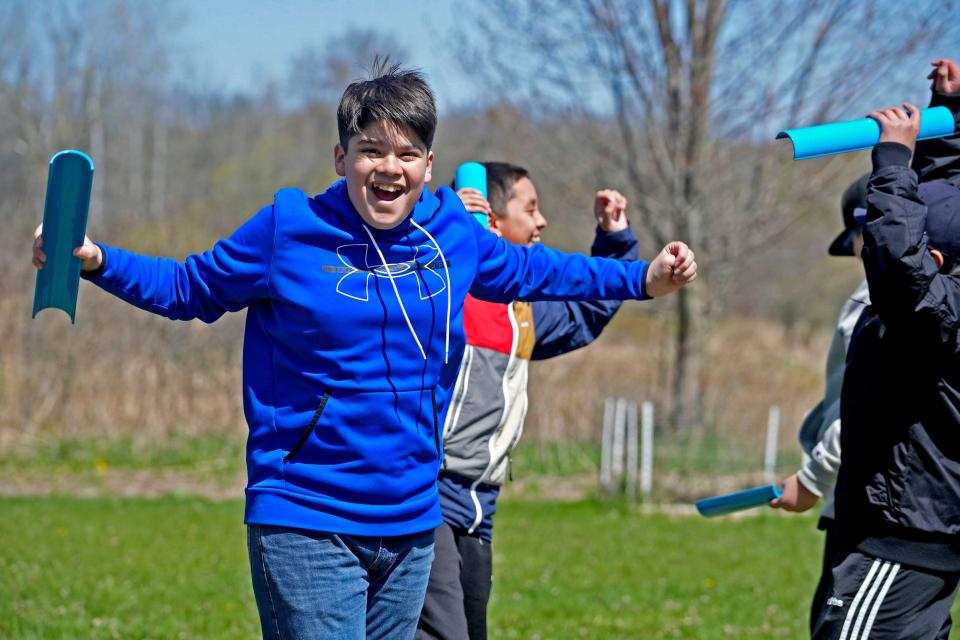
“People are very hungry for uniting those aspects of their life and not just having these little compartments, or silos,” said Joe Meyer, the Marquette High teacher who is also the center’s executive director.
The 7th graders, who attend Notre Dame Middle School, visited this spring for a team-building retreat. Staff at the center have led everything from ecology programs on birds and insects to foraging workshops, candlelit prayer hikes and feast day celebrations for Catholic saints.
The center’s woodsy location and hands-on encounters with nature seem to have resonated with visitors, and word is spreading. About 6,000 kids and adults came through the doors in 2022, and construction on an expansion will begin in the fall.
Girl Scout camp property provided essential infrastructure
Meyer has long loved the outdoors. Before he became a biology and environmental science teacher at Marquette High, he taught at national parks.
In 2016, inspired by Pope Francis’s Laudato Si’ encyclical that urged care for the earth, Meyer felt a calling to do more. He wanted to help spark faith in young people, and he wanted to give them a reason to be responsible stewards of the environment.
“So often, in the environmental world, faith is left out. And often in our faith life, ecology and the environment is left out,” he said.
Meyer started holding events at schools and parishes. By 2018 he envisioned a central location to host all the activities, and he began fundraising for what would become the Catholic Ecology Center.
The initial goal was to buy a plot of undeveloped land and build on it years later once the nonprofit he’d founded had the money. When a land deal fell through, it was the latest in a series of ups and downs. Meyer had doubts his dream was possible.
But then he heard Camp Winding River, a longtime Girl Scout camp in rural Dodge County, was up for sale. It had several buildings and cabins, miles of trails, a pond, a creek and access to a river.
“It almost seemed too good to be true,” he said.
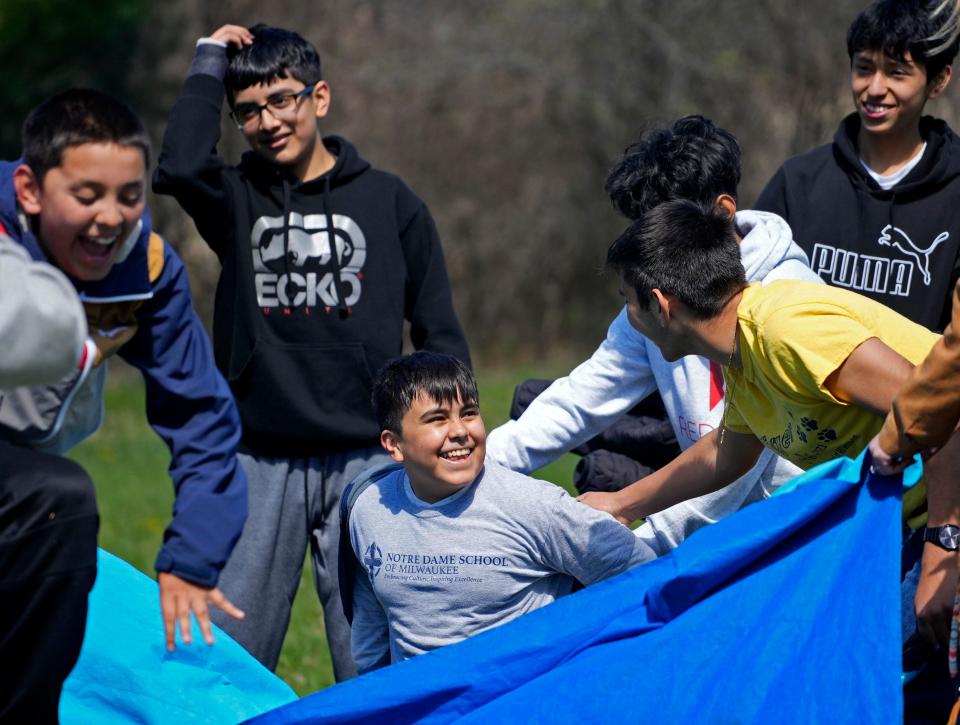
He returned home from touring the property and told his children with tears in his eyes, “I think we found the property.”
It turned out to be the perfect opportunity.
“Without that initial infrastructure, we wouldn't have been able to get to where we are now so quickly,” Meyer said.
The center now rents out the cabins to groups, and a lawn with a flagpole where Girl Scouts gathered each day of summer camp for opening and closing ceremonies is now a prairie for bees and other pollinators.
The original Girl Scout lodge serves as the center’s main building. Construction on a 3,500-square-foot addition will begin in fall to house a chapel and extra space for programs.
The center is accessible to more than the parish and school groups that visit for retreats. Hiking trails are open to the public dawn to dusk, and visitors can canoe along the Rubicon River and use the center’s cross-country skis in the winter.
And a five-acre farm on the property called Clare Gardens is home to chickens, beehives and fruit and vegetable crops. Last year it produced 30,000 pounds of food for local Catholic senior living facilities.
Liebert and lead educator Barbara O’Brien are the two center's two paid staff, and the Rev. John LoCoco, vocation director for the Archdiocese of Milwaukee, serves as the center's chaplain. Dozens of others volunteer their time.
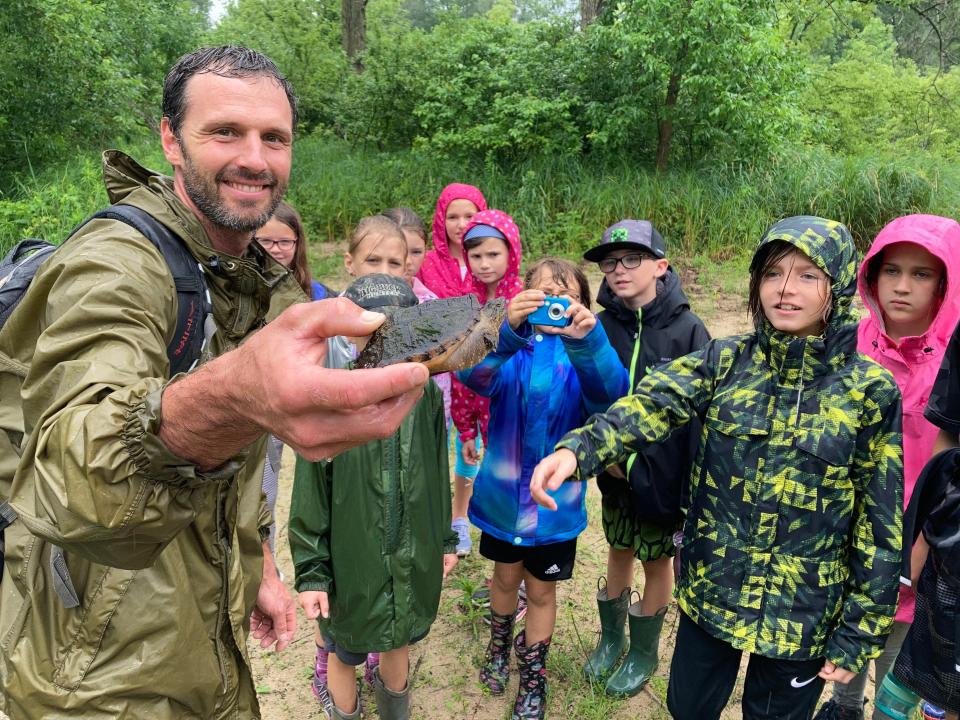
Beauty of nature instills a need to care for the earth
Meyer knows from his teaching career that telling people they should care about the environment doesn’t work. They have to be shown why they should care.
That realization “has to be built upon some sort of personal relationship and interaction with creation, with ecology,” he said.
The “awe and wonder” people experience in a beautiful natural environment – like the Catholic Ecology Center's property – can be the basis for instilling the ethic of stewardship, that is, taking good care of the land, Meyer said.
It’s one of his main goals for the center.
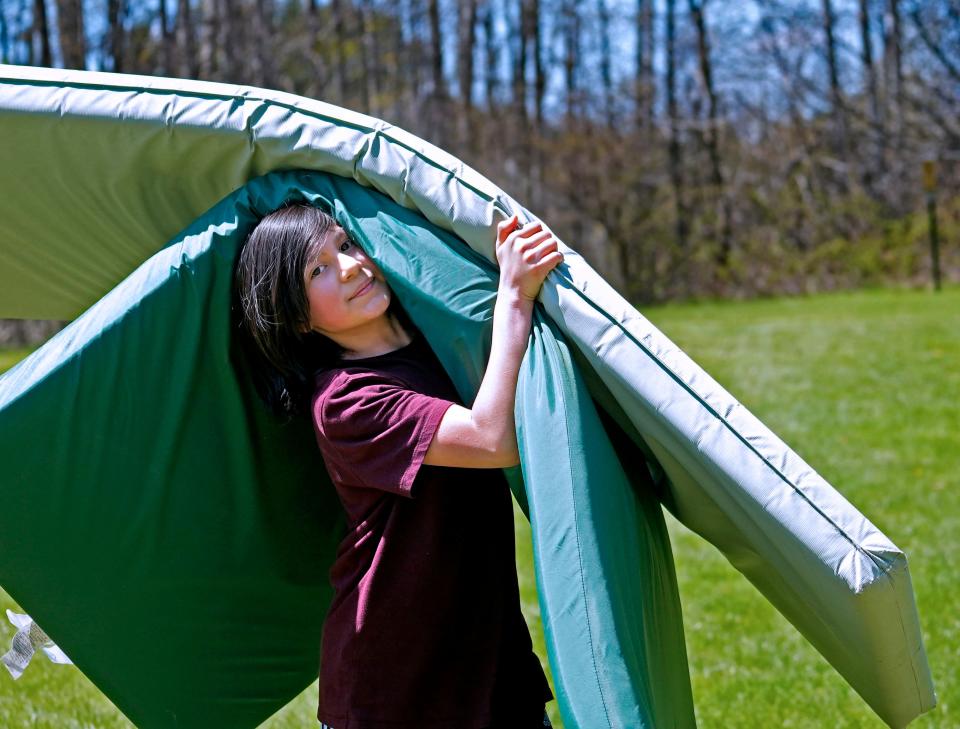
Staff often puts visiting retreat groups to work with tasks around the property. And volunteers are invited to help with projects like wildlife monitoring and gardening.
“They’re getting their hands dirty, so to speak – sometimes literally,” Meyer said. They’re “doing meaningful work as a concrete way to put their faith in action.”
Meyer and the staff also have noticed there’s something peaceful about driving from Milwaukee to the center’s rural location. It’s a chance to disconnect and experience quietness that can’t be achieved in a city, they said.
For kids who live in urban areas, like the 7th graders of Notre Dame Middle School, it also offers a rare chance to experience nature, Liebert said.
“The tiniest things, like an earthworm, become amazing,” she said. “There’s a new sense of wonder every time there.”

City kids get an encounter with nature, chance to bond with classmates
The middle school boys were enthralled even by a wild turkey they saw from the windows of the bus, their science teacher, Sarah Scaffidi, said.
Located on the south side, Notre Dame is a bilingual school with a 99% Latino population. Students enroll with state-funded vouchers. The kids don’t have easy access to wide-open green spaces or regular encounters with wildlife, she said.
“We forget that we’re part of something bigger when we’re in our city,” Scaffidi said.
She hoped they left feeling inspired to look more closely at the natural world around them.
The boys relished the day outside the classroom walls under a bright blue sky.
Liebert and O'Brien coached the students through activities where they’d need to work together and communicate with each other to succeed. They pulled ropes attached to a tire to lift it onto a pole. They balanced against each other while walking on ropes a foot off the ground. And they tried to keep a marble rolling along a track of plastic tubes.
Perla Muñoz, a mom chaperoning the field trip, watched as the boys shouted and strategized and cheered.
“I hope that they remember this forever,” she said. “They don’t really get to do this out in the city.”
As service projects, some students carried mattresses to cabin bunks and others shoveled gravel that had spread from a driveway into the grass.
Alejandro Chavez, 13, enjoyed getting to bond with his classmates, even during the activities that tested their communication skills.
“We might have some downfalls, but we get back up and work hard,” he said.
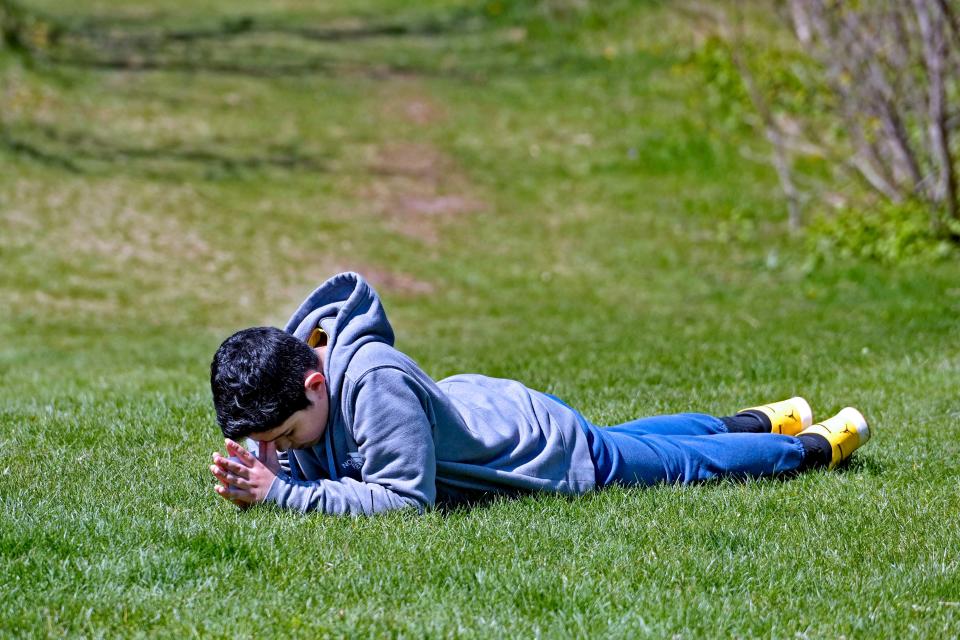
Alejandro also loved the chance to be outside. It’s not safe to play in the street, so kids in the neighborhood mostly stay indoors, he said.
“Inside, you don’t do much. Outside, you get to play around,” he said. “It brings back memories of when you were little.”
At the end of the day, the boys spread out on the lawn on the hill overlooking the property to write prayer intentions and reflect. The kids who’d been laughing and running all day were suddenly still and quiet.
In their silence, the sounds of nature rose to the surface. Birds chirped and a breeze rustled the trees.
It’s how many programs at the Catholic Ecology Center end, with a sense of peace and a closer connection to the natural world.
“I’m so humbled to just watch this all come together,” Meyer said.
This article originally appeared on Milwaukee Journal Sentinel: Marquette High teacher fuses faith, nature at Catholic Ecology Center

